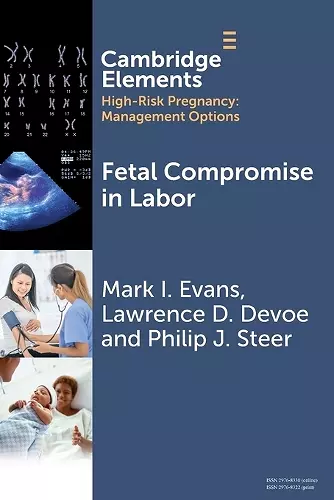Fetal Compromise in Labor
Philip J Steer author Mark I Evans author Lawrence D Devoe author
Format:Paperback
Publisher:Cambridge University Press
Publishing:13th Feb '25
£17.00
This title is due to be published on 13th February, and will be despatched as soon as possible.

We have re-engineered management of labor/delivery/ and the newborn to significantly reduce neonatal compromise and medicolegal exposures.
50 years ago, the initial aim for electronic fetal monitoring (EFM) was to prevent stillbirth. The authors believe EFM must be considered and analyzed as a classic screening test and requires contextualization for improved performance.Sixty years ago, the purpose of introducing electronic fetal heart rate monitoring (EFM) was to reduce the incidence of intrapartum stillbirth. However, by the early 1980s, with falling stillbirth rates, fetal blood sampling had been widely abandoned, as many considered that EFM was sufficient on its own. Unfortunately, while the sensitivity of EFM for the detection of potential fetal compromise is high, specificity is low, and there is a high false positive rate which has been associated with a rising cesarean section rate. The authors suggest that EFM is considered and analyzed as a classic screening test and not a diagnostic test. Furthermore, it requires contextualization with other risk factors to achieve improved performance. A new proposed metric, the Fetal Reserve Index, takes into account additional risk factors and has demonstrated significantly improved performance metrics. It is going through the phases of further development, evaluation, and wider clinical implementation.
ISBN: 9781009466301
Dimensions: unknown
Weight: 137g
76 pages